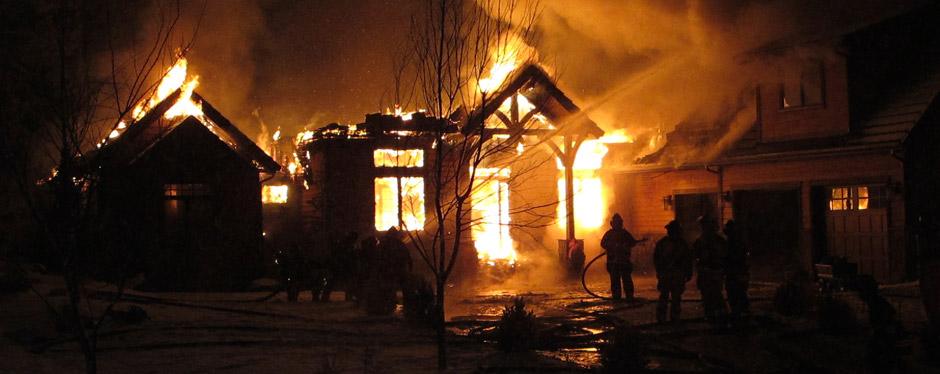 One of the most common claims filed by homeowners in Florida involves water damage. Water damage can have several causes, including but not limited to plumbing leaks, roof leaks, drain line backups, washing machine leaks or a/c leaks. These water leaks can cause substantial damage to a residence or personal property and furniture. While most insurance policies cover such sudden and accidental water leaks, the most common denial for such claims is the constant or continuous seepage exclusion. This exclusion comes into play when the insurance company retains an expert or independent adjuster to inspect the damaged property and provide an opinion that the damage is long term. The insurance company will rely on photographs, the existence of prior claims, prior repairs or prior plumbing issues to support their opinion. As a result, homeowners might be faced with the difficulty of trying to prove that the water damage they sustained on their property was sudden and accidental.Continue reading
One of the most common claims filed by homeowners in Florida involves water damage. Water damage can have several causes, including but not limited to plumbing leaks, roof leaks, drain line backups, washing machine leaks or a/c leaks. These water leaks can cause substantial damage to a residence or personal property and furniture. While most insurance policies cover such sudden and accidental water leaks, the most common denial for such claims is the constant or continuous seepage exclusion. This exclusion comes into play when the insurance company retains an expert or independent adjuster to inspect the damaged property and provide an opinion that the damage is long term. The insurance company will rely on photographs, the existence of prior claims, prior repairs or prior plumbing issues to support their opinion. As a result, homeowners might be faced with the difficulty of trying to prove that the water damage they sustained on their property was sudden and accidental.Continue reading
Florida Appellate Court Affirms Holding that Arson Constitutes Vandalism
An incendiary fire destroyed a home that had been vacant for more than thirty days. The carrier denied the claim under the policy’s vacancy exclusion that excluded damage caused by vandalism and malicious mischief. The policyholder argued that while one could argue that arson constitutes vandalism, since vacancy was not defined by the policy, the exclusion should be considered ambiguous. The 5th District Court of Appeals in Florida disagreed and affirmed the trial court’s ruling that the plain meaning of vandalism included intentionally set fires. Botee v. Southern Fidelity (Feb. 6, 2015, Fla. 5th Dist.).
House bill aims to curb contractor abuses by barring attorneys fees
Attorneys would not be able to collect fees if they sued insurance companies on behalf of a repair contractor or other third party to an insurance contract, if a proposed state law filed this week is enacted.
State Rep. John Tobia, R-Melbourne Beach, filed the bill Monday, minutes after insurance industry spokesmen asked lawmakers to help curb contractor abuses and increases in lawsuits and repair bills for water damages.
The insurers blame the increase on the ability of home insurance policyholders to sign over their claims benefits to repair contractors.
At a House Insurance & Banking Subcommittee workshop in Tallahassee on Monday, insurance industry spokesmen said attorneys are coaching water damage repair contractors to persuade policyholders to sign over benefits, then inflating invoices and suing. Contractors say they sue when insurers deny payment or pay less than the invoice amounts.
Insurers called for banning or restricting policyholders’ ability to assign their claims benefits.
Continue reading
Sinkhole Litigation/Application Misrepresentation
Sinkhole Litigation/Application Misrepresentation: trial court improperly granted summary judgment in insurer’s favor rescinding insurance policy on the basis that homeowners misrepresented condition of home in application because of the limited evidence presented – Mora v. Tower Hill Prime Ins. Co., Case No. 2D13-4125 (Fla. 2d DCA Jan. 23, 2015) (reversed and remanded)
Tips for Filing a Homeowner’s Insurance Claim
 Most Florida homeowners have an insurance policy to protect their home against water damage, storm damage, vandalism, theft and fire. When a loss occurs, your insurance policy should allow you to return your property to its pre-loss condition. Yet, countless homeowners experience a feeling of helplessness when their claim is denied or underpaid by the insurance company. This article addresses a few important points that you should know about a typical Florida Homeowner’s insurance policy and will hopefully increase your awareness of your rights and the steps to take in the event of a loss.
Most Florida homeowners have an insurance policy to protect their home against water damage, storm damage, vandalism, theft and fire. When a loss occurs, your insurance policy should allow you to return your property to its pre-loss condition. Yet, countless homeowners experience a feeling of helplessness when their claim is denied or underpaid by the insurance company. This article addresses a few important points that you should know about a typical Florida Homeowner’s insurance policy and will hopefully increase your awareness of your rights and the steps to take in the event of a loss.
1. Understand your insurance policy.
All homeowners in Florida should read and attempt to understand their policy. If you have a question about what is covered or not covered, speak to your insurance agent or an experienced property insurance attorney to obtain a detailed explanation. A typical Florida Homeowner’s insurance policy will pay for damage to your property and possessions after a loss. A loss can be a storm such as a hurricane, tornado, fire, plumbing or roof leak, theft, or act of vandalism. The insurance policy should also cover your out of pocket expenses if the loss is significant enough to displace you from your home.
Most Florida Homeowner’s insurance policies do not include coverage for damages caused by power failure, faulty zoning, earth movement, defective maintenance, bad workmanship and flooding. Also, with respect to plumbing leaks, most policies exclude damage caused by any leaks that have been ongoing for an extended period of time, or damage caused by “constant or repeated seepage or leakage.” Your insurance company may rely on its interpretation of the policy to wrongfully deny your claim.
2. File your claim immediately
A Florida Homeowners’ insurance policy lists the duties you have to comply with in order to have a right to coverage. One such duty that exists in every insurance policy is the duty to timely report your claim to the insurance company. The window to report a claim can be as short as only a few days. Additionally, by not immediately reporting your claim, you might be allowing the conditions of the property to worsen over time, which could result in the insurance company denying your claim for failure to mitigate damages. Keep in mind that you, as the insured, are entitled to challenge the insurance company’s denial and it is the insurance company’s burden to show why a claim is not covered.
3. Document everything
Another important duty that is included in a Florida Homeowner’s insurance policy, is the Homeowner’s obligation to provide the insurance company with documentation of their loss. This includes providing any receipts, police reports, photographs or videos in your possession. To avoid a denial based upon lack of cooperation by the insurance company, you should keep copies of everything.
If you have any questions concerning your Homeowners’ insurance policy, or think you may have a property claim, call The Property Claim Lawyers of The Mineo Salcedo Law Firm. One of our attorneys will be happy to review your insurance policy and conduct a free inspection of your home.
Personal Injury & General Civil Litigation
At Mineo Salcedo Law Firm, we pride ourselves on delivering top-notch legal representation across a variety of practice areas. While our primary focus lies in property insurance claims, our attorneys bring a wealth of experience in personal injury and general civil litigation, ensuring we can address your unique legal needs with skill and dedication.
Diverse Litigation Expertise
Our team has successfully handled a broad spectrum of cases, including:
- Personal Injury and Auto Negligence: Fighting for the compensation you deserve after an accident.
- Wrongful Death: Providing compassionate representation during the most challenging times.
- Products Liability: Holding manufacturers accountable for defective products.
- Medical Malpractice: Ensuring victims of medical negligence receive justice.
- Corporate and Partnership Disputes: Resolving business conflicts with precision and professionalism.
- Family Law and Criminal Cases: Addressing sensitive matters with care and expertise.
No matter the complexity of your case, our experienced attorneys are equipped to advocate for your rights and guide you every step of the way.
Personalized Consultations
Navigating legal challenges can be overwhelming, but you don’t have to face them alone. We offer a free consultation to discuss your case, understand your goals, and tailor a strategy that best suits your needs.
Contact Us Today
If you’re seeking reliable and results-driven legal representation, look no further. Schedule your consultation by calling 954-463-8100. Let the Mineo Salcedo Law Firm provide the expertise and support you need to resolve your legal matters with confidence.
Don’t wait—reach out today to explore your options and take the first step toward a favorable resolution.


